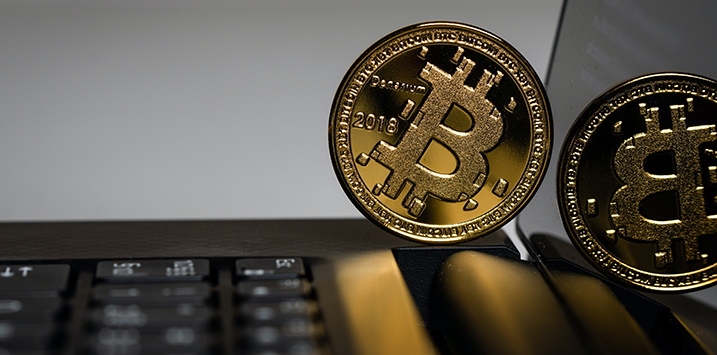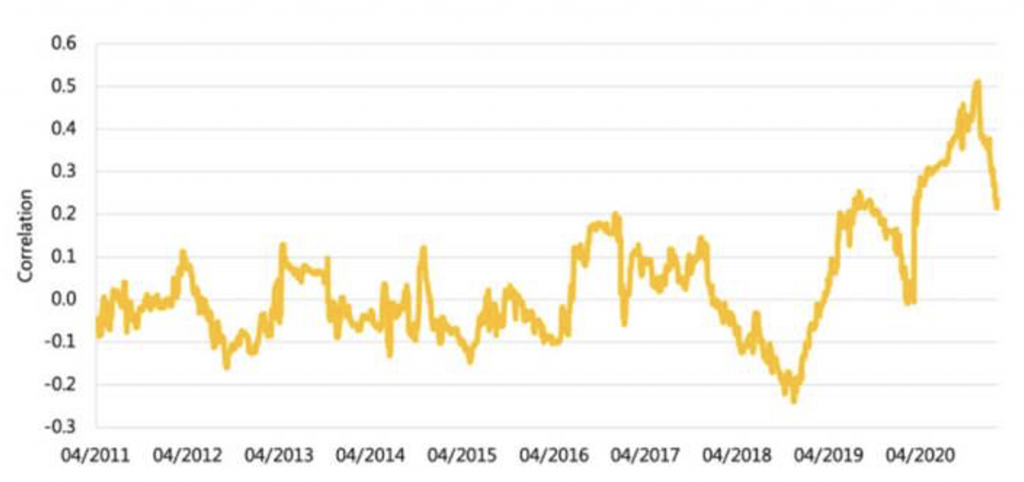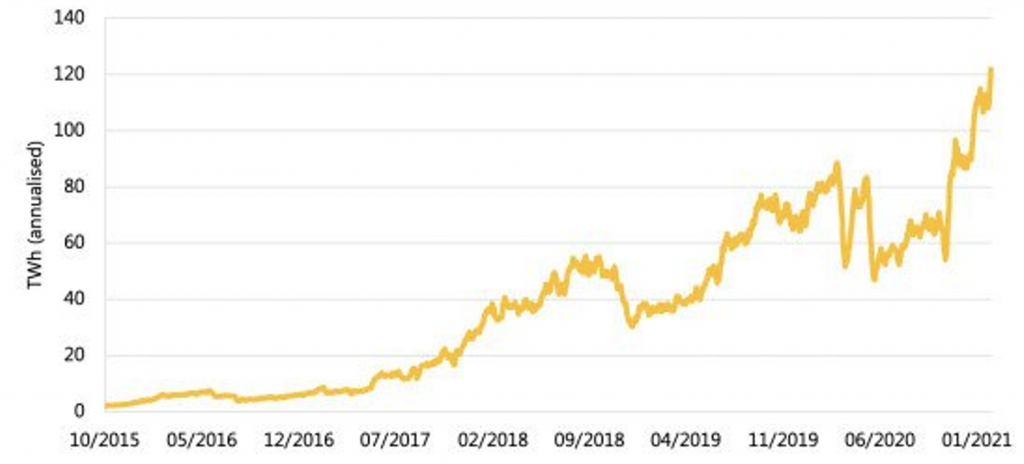
What do you think of Bitcoin?
It is the question I am most frequently asked by young people that stop me in the street. Indeed, even my own kids ask me for a view. What follows is a few thoughts I share with them.
First a bit of history and background with thanks to Wikipedia.
An overview on digital currency
A research paper by David Chaum introduced the idea of digital cash in 1983. In 1996 e-gold was the first widely used Internet money, growing to several million users before the US Government shut it down in 2008.
US officials and academia has referred to e-gold as “digital currency.” In 1997, Coca-Cola offered a mobile payment option for its vending machines and in 1998 PayPal launched its USD-denominated service.
Q coins or QQ coins, were used as a type of commodity-based digital currency on Tencent’s QQ’s messaging platform and emerged in early 2005. Q coins were so effective in China that they were said to have had a destabilising effect on the Chinese Yuan currency due to speculation.
Decentralised blockchain-based digital currencies with no central server, and no tangible assets held in reserve were launched with the advent of Bitcoin in 2009. Bitcoin is the first and most popular peer-to-peer electronic monetary system based on cryptography.
What is cryptocurrency?
A cryptocurrency is a sub-type of digital currencies and a digital asset that relies on cryptography to chain together digital signatures of asset transfers, peer-to-peer networking and decentralisation. In some cases a proof-of-work or proof-of-stake scheme is used to create and manage the currency.
Cryptocurrencies can allow electronic money systems to be decentralised. When implemented with a blockchain, the digital ledger system or record keeping system uses cryptography to edit separate shards of database entries that are distributed across many separate servers.
Digital based currencies are also known as cryptocurrencies and have proved resistant to attempts by government to regulate them, because there was no central organisation or person with the power to turn them off.
There are too many criticisms of cryptocurrencies preventing widespread usage, which therefore remains a dream rather than a reality. They are not easily used or exchanged, banks generally do not accept or offer services for them and merchants will have trouble accepting them due to their volatility.
Some note the lack of regulation opens the way for pump and dump schemes and the more anonymous a currency is, the more attractive it is to criminals, regardless of the creator’s intentions. Consequently, some countries have regulated against their use. Meanwhile Bitcoin specifically has been called out for its energy inefficient SHA-256-based proof of work. More on this below.
Bulls v Bears
The bull case currently hinges on its limited supply and its superior portability versus gold, which gives it an alternative-to-gold status as both a potential store of wealth and universal currency.
But the extreme volatility is as heavy a problem for wide acceptance and use in transactions as is the need for a wheelbarrow to cart gold around. Another argument against the alternative to gold is that the correlation with gold is extremely low (Figure 1).
Figure 1. Bitcoin rolling correlation with Gold
Source: Bloomberg/Redington UK
Bitcoin’s capitalisation is also just five per cent the size of gold. Meanwhile only two per cent of Bitcoin wallets control nearly 95 per cent of that market capitalisation, which means the limited liquidity/freefloat is a hurdle to wide adoption and of course contributes to its volatility.
A bullish argument however points to the volatility of cryptocurrencies itself and the consequent attractiveness as a trading vehicle for momentum or volatility-based hedge funds. Trading by hedgefunds however doesn’t immediately lead to more practical use cases, nor does it reduce the volatility.
According to the Cambridge Centre for Alternative Finance, Bitcoin energy consumption has been going through the roof (Figure 2).
Figure 2. Estimated Bitcoin energy consumption (annualised terrawatts)
Source: Cambridge Centre for Alternative Finance
A more recent criticism however stems from the emerging ESG narrative in investing. According to one UK based analyst, the electricity consumed by the Bitcoin network in one year could power all the UK’s tea kettles used to boil water for 27 years.” Of course, as an additional competing currency to the existing sovereign-based system, the added energy required appears wasteful but as a replacement the argument subsides.
Regulators frowning
Back in 2014, Brock Pierce created the Tether currency as a mechanism through which cryptocurrency investors could quickly enter and exit a position. Unlike Bitcoin and its cryptocurrency brethren, Tether was meant to have a stable price, backed one-to-one by real U.S. dollars, while retaining the ability to move it instantly. This compares to the days it can take a bank to cash out a cryptocurrency if they’ll support it at all.
An investigation by the New York Attorney General’s office began as questions about whether or not the cryptocurrency was actually backed dollar-for-dollar were raised. After years of appeals and delays, a resolution occurred in late February this year. The New York Attorney General’s office announced it had come to a settlement with Bitfinex after a 22-month inquiry into whether the company had been trying to cover up its losses by misrepresenting the degree to which its Tether reserves were backed by fiat collateral.
Bitfinex and Tether will pay US$18.5 million but will not be required to admit to any wrongdoing. The settlement however clearly states that Bitfinex and Tether can no longer service customers in the state of New York.
The whole point of raising this saga is that one gets the distinct impression regulators are painting cryptocurrencies with a Wild West brush and remain opponents.
Fundamentals?
The arguments surrounding a lack of fundamental value and its limited supply are equally weak counter arguments. A limited supply alone doesn’t confer on an item any value. There needs to be a perception of value. We note sovereign currencies rely on the perception of value to sustain them especially given the exponential growth in deficits and ageing populations undermines the argument that they are backed by the sovereign’s ability to tax.
Finally, the path to wide adoption and use remains extremely unclear if not uncertain. There are obstacles to transacting and storing large quantities of the currency a point recently raised by Elon Musk in his tweets with the Dogecoin founder. Additionally, the currencies currently don’t trade on regulated exchanges, limiting the appeal for regulated institutions and fund managers.
As means to compensate computer owners for their efforts maintaining the blockchain, cryptocurrencies possibly had merit. Unfortunately, the currencies were drafted by speculators and opportunists, which preoccupied participants and limited genuine progress in their development and practicality.
Whether the price rises or falls next week or next month is anyone’s guess. A reasonable long-term assumption is that a digital currency does one day emerge but picking the winner from the current crop of hopefuls is almost impossible and it may be that the winning ‘Bitcoin 2.0’ doesn’t emerge for years, even decades. Meanwhile, speculation will remain rampant.


Great article.
I take it from all this that you are not yet getting involved in buying or speculating in cryptocurrencies or related industries Roger?
We’ve taken an interest in the various projects on blockchain that seem to be potentially disruptive. NFTs are an example on the Ethereum blocchain. probably a positive for Ether at least in terms of rising popularity.
The underlying value of bitcoin is a big fat zero.
Cambridge University researchers have shown that Bitcoin consumes around 121.36 terawatt-hours (TWh) a year in electricity to make. It is pretty hypocritical that electric-car firms that invest in Bitcoin while purporting the former environmental friendly image, isn’t it ?
good point Chris. Perhaps you should should tweet Musk asking him about that. Surely Tesla’s not going to qualify under the new ESG narrative moving like a total wave through the investment world.
U can’t turn bitcoin off u would have to turn the internet off. If it’s banned in one place u simply move your wallet to another country.
“simply”?
I don’t think anyone proposed turning it off. It’s interesting that India, China and Russia have all put curbs or bans on trading bitcoin. Interesting because some are contemplating their own digital currencies. The point to be made is that if developed western nations followed the same path, it wouldn’t stop people like you trading the currency but it would impact the idea of widespread adoption. It’s really important Terry to seperate speculative trading from the idea of widespread adoption as a transactional store of value. Id’ be delighted to hear how you see cryptos moving from speculative trading vehicles to global reserve or base currency. I have heard lots of believers tell me a cryptocurrency will one day be the standard but I am yet to hear the journey to that status explained or described.
Between 1933-1975, gold ownership was banned in the USA. What makes bitcoin bulls so sure that cryptocurrency ownership won’t be banned as well?
Governments have any number of reasons to dislike bitcoin. Bitcoin allows all manner of illicit goods to be traded on the dark web. Bitcoin helps criminals hide assets, launder money, transfer money, avoid taxes and finance terrorism.
Bitcoin undermines the power of central banks and may even serve to destabilize weaker currencies. So it’s really a question of when – not if – Governments start banning crypto or imposing regulations.
Good thoughts. Just don’t expect the regulators to act against Bitcoin in a hurry. In the US, individual freedoms can trump regulators. We saw this with GameStop. The activity you saw among the subreddits communities such as r/WallStreetBets in GameStop shares is illegal in Australia. Pumping and dumping, and organising on forums to manipulate share prices is unlawful. Meanwhile, in Australia, the ASX would have issued the company with a speeding ticket, suspending its shares awaiting an explanation. That would limit the impact. In the US, the SEC did nothing and people will have lost millions. Only much later was Keith Gill, better known as GameStop trader ‘Roaring Kitty, summoned to testify before congress. SO don’t hold your breath waiting for international regulators to reach a consensus and develop a universally accepted response to Bitcoin even if they see it as a threat.